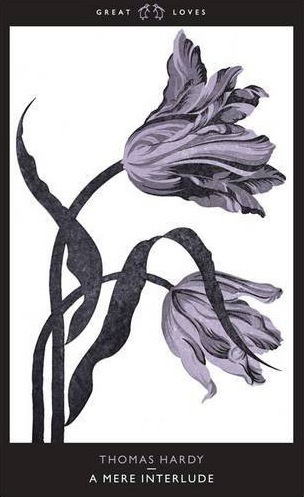SUMMARY
This is AI generated summarization, which may have errors. For context, always refer to the full article.

[Book cover image from Reading Matters]
MANILA, Philippines – In this age where everyone can be Googled, it’s hard to keep secrets anymore — the amount of time you spend with a person is no longer proportional to how much you know about them.
Dozens of my Facebook friends are people I’ve only met once or twice at parties, and yet I know what music they listen to, where they work, where they went to school, and what they think of the Pope’s resignation.
Our age of faux intimacy and rapidly dissolving boundaries is a far cry from the world of Thomas Hardy’s Victorian short stories. In Wessex, his fictional English town, our contemporary concepts of “intimacy” and “dating” disappear, and characters have to work harder at sharing themselves with their beloveds, and with unburdening themselves of their secrets.
And so when I read “A Mere Interlude,” which is one of 3 short stories published in Penguin Books’ Great Loves series, I felt like I was in a completely unfamiliar world that I was reluctant to leave.
‘A Mere Interlude’: When your ex comes back to haunt you
Stoic Baptista (who is not the WWE wrestler Batista, as I had to constantly remind myself while reading), a schoolteacher, travels home to marry her old neighbor Mr. Heddegan and runs into her hot-headed ex-lover Charley on the way.
The two elope and prepare to profess their union to her parents, but before they can do so, Charley dies in a tragic accident. Baptista returns to her parents’, tells no one about her marriage to Charley, and marries Mr. Heddegan. The story revolves around the guilt and betrayal that Baptista wrestles with in her mind — should she tell her husband about her past lover? Will he ever forgive her?
A story such as “A Mere Interlude” is jarring to read in the 21st century, because really, does it matter that you’ve been married before? But then again, the value of reading a story is in escaping your present moment, in learning to connect what knowledge you have of history with what you’re reading in order to empathize.
What I’m really saying is, don’t be too hard on poor Baptista — times were different then. As tempting as it is to brush off her dilemma and say, “Tsk, drama lang ‘yan (That’s just drama),” we also have to recognize that the Victorian era was incredibly restrictive for women and for relationships in general.
Hardy handles the conflict between oneself, societal judgment, and one’s fears beautifully, and his prose remains readable even to 21st century readers.
‘An Imaginative Woman’: the Victorian version of fan-girling
Which brings us to the second story in the collection, closer to my own heart — “An Imaginative Woman.”
“An Imaginative Woman” revolves around Ella Marchmill, a housewife-slash-occasional-writer caught in a lukewarm marriage. She and her family (husband and kids) go on vacation, and while all the other members of the household are enjoying themselves, Ella finds herself entranced by Robert Trewe, a poet and former occupant of one of the inn’s rooms.
There begins a tumultuous affair with the poet, who has more in common with Ella than her husband ever could. However, the affair is all imaginary — through the books he’s left behind, the raincoat in the closet, and scribblings on wallpaper, Ella finds herself desiring a man whom she has constructed herself.
I won’t spoil the ending of “An Imaginative Woman” and will let you wonder whether Ella ever meets Robert until you read it yourself. But a crucial portion of the story’s context is Ella’s use of “John Ivy” as a nom de plume. During this era, the idea of a woman writing poetry was preposterous, and often led to assumptions about the quality of the work.
It’s ironic that in writing, which is what Ella is most passionate about — and which might be the thing that leads her to Robert Trewe — she cannot be herself. Hardy’s story isn’t just about a yet-to-be-requited love, but also the social and psychological barriers that have kept people from pursuing the love they truly want.
So do Hardy’s stories earn the “Great Loves” tag? While they may not satisfy in the same way Precious Hearts novels do, they do pursue one of humankind’s eternal questions about love — What’s wrong with me, and why can’t I find it?
If you want to see a few possible answers, pick up a copy of A Mere Interlude, and see where these stories take you. – Rappler.com
(A Mere Interlude is published by Penguin Books as part of its Great Loves series, and is available at National Bookstore.)
(Florianne L. Jimenez teaches Literature and College Writing at the University of the Philippines Diliman. She is a Palanca award-winning non-fiction writer, with a creative interest in the self, places, and consciousness. She has a massive to-be-read pile dating back to 2008, which includes such titles as ‘The Collected Stories of Gabriel Garcia Marquez,’ ‘Book 5 of Y: The Last Man,’ and ‘The Collected Works of TS Spivet: A Novel.’)
Add a comment
How does this make you feel?
There are no comments yet. Add your comment to start the conversation.